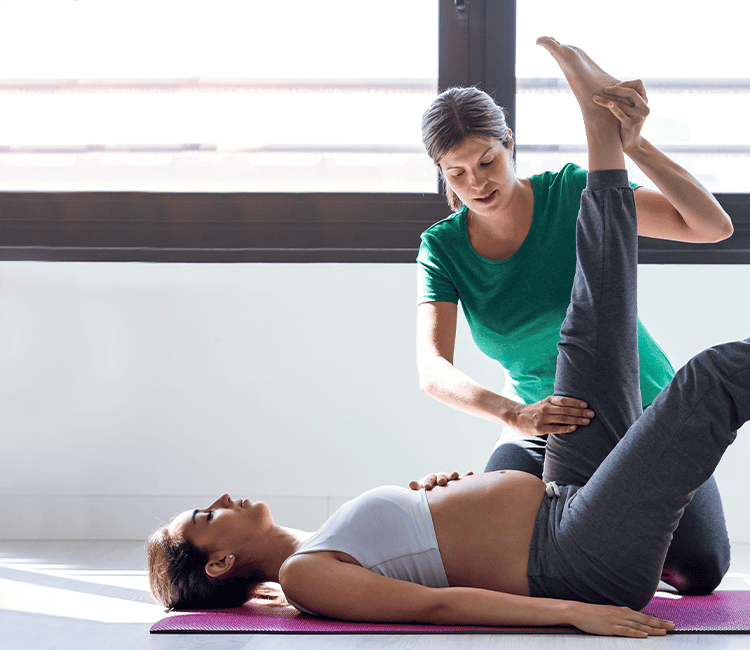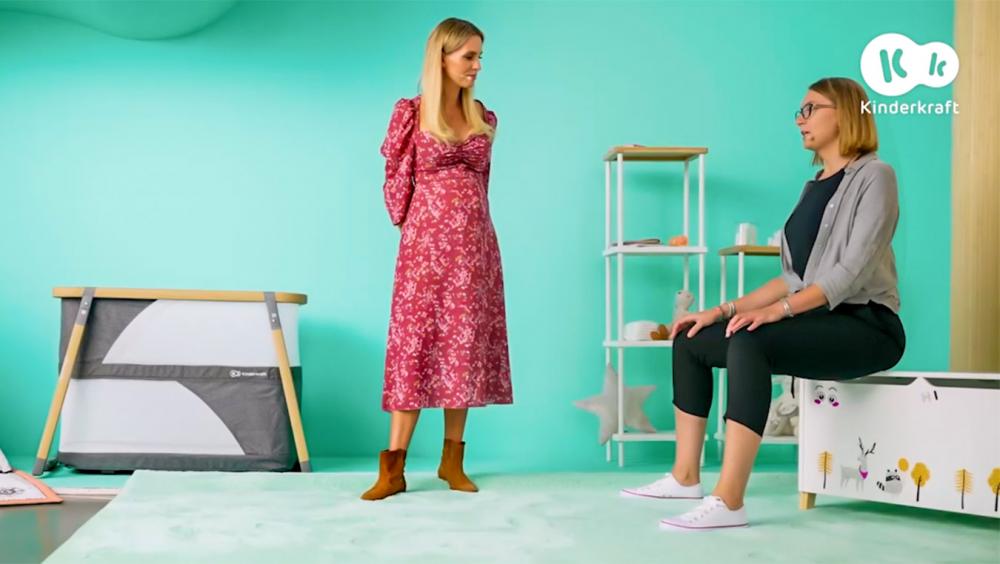How to deal with back pain during pregnancy

Pregnancy has a huge impact on a woman's body. In some cases, the discomfort isn't so bad, while in others, it's significant. Morning sickness, dizziness and pain accompany pregnant women throughout pregnancy, depending on the trimester. However, back and lumbar pain appear relatively late, and cause the most discomfort. Together with physiotherapist
Honorata Dziel in the third episode of the series "Talks with experts: parenting made easier", we'll show you how to get rid of back pain at home as well as the special episodes.
If you'd like to read about the well-being of pregnant women, see "How to deal with malaise in pregnancy" and watch episode 2 of the series.
Back pain in pregnancy
Back pain in pregnancy usually appears at approximately six to seven months. The belly is growing, the child is gaining weight, and the mother's joints and muscles are impacted by strong forces, which until now were distributed throughout the entire body. For some women, back pain not only prevents walking, but also being able to lie down in comfort. The problem mainly affects the lumbar region.
Remember that if your pain is intensifying, don't take any medication without consulting your gynaecologist! This applies to both over-the-counter medications and herbal mixes that may harm you and your baby.

However, there are various methods to get rid of pain that don't require the use of medication. Doctors have a lot to say about the beneficial effects of exercise, but remember that when pregnant, not all exercise is suitable, so it's best to ask your doctor about this. It's easier if you were active before getting pregnant, as your muscles are stronger and this period will be easier for you.
What can you do about back pain in pregnancy?
"I have a very holistic approach," says physiotherapist Honorata Dziel. "Prevention is the key, and you should start strengthening your core muscles even before you get pregnant. Once you're already pregnant, the pelvis widens, and much of the force moves to the joints, so it's impossible to do all the exercises that you did before pregnancy."
Recommended exercises during pregnancy:
● stabilisation of core and Kegel muscles,
● pool,
● stretching,
● yoga,
● walks.
Avoid potentially dangerous activities that may cause you to fall on your belly. This applies to both rollerblading and running. As regards running, consult a doctor, because if you used to run regularly, your gynaecologist may give you the green light to continue (until seven or eight months).
During pregnancy, you should also avoid some massage, because there's a high risk of cramps. That's why the best option is to consult a physiotherapist who specialises in looking after pregnant women. However, we know what real life is like, and that this isn't always possible. That's why we're going to show you several methods to ease discomfort during pregnancy.

"I have patients come to me for acupuncture. It brings quick results – women get rapid relief, particularly in the pelvic and buttock region," says physiotherapist Honorata Dziel.
Ask your gynaecologist about seeing a physiotherapist. At a physiotherapy appointment, you'll find out which pregnancy-suitable exercises will help you eliminate back pain not only in the short, but also in the long term. The physiotherapist will also show you how to do the exercises at home to strengthen your muscles, including your Kegel muscles, which will help you during a natural delivery.
Two positions to relieve your back
Watch the episode, in which the physiotherapist shows how to correctly do exercises for a sore back.
Is your back sore during pregnancy? Breathe!
"I started getting back pain approximately seven or eight months into the pregnancy," says Maria Dejmek. "Luckily, we had a physiotherapy clinic not far from home. I went there for relaxation massage, and the physiotherapist also recommended taping sore muscle groups using special tape."
If your back is so sore that you have trouble performing basic activities, ask your doctor about taping muscle groups. You can buy this tape in special sports orthopaedic stores, as well as online. You can also ask a physiotherapist to apply it, so you can be sure that it's done correctly and works like it should, stabilising specific muscle groups and distributing the load to other body parts to relieve the aching areas.

It's also good to learn how to breathe. This may sound odd, because breathing is a given. But the right breaths at specific intervals allow you to relax the muscles and calm down. You need to learn this – there are special facilities at which meditation or yoga specialists will show you how to control breathing during pain. This will also be extremely useful during natural labour.
How to deal with pain during pregnancy
If you want to know what type of pain mothers experience and watch an instructional video for the two positions shown by a physiotherapist, watch the third episode of the series "Talks with experts: parenting made easier".
